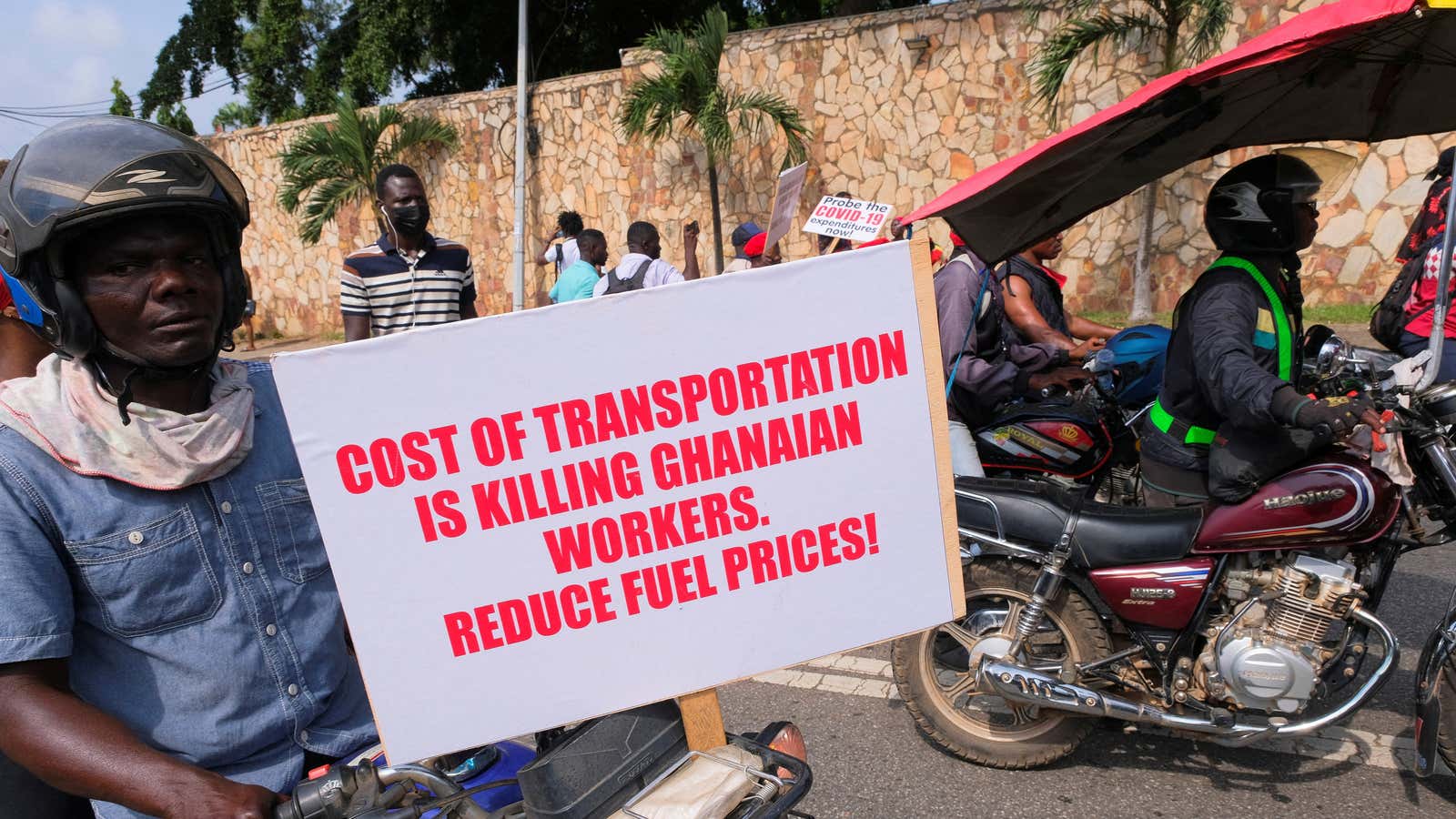Ghana’s annual inflation climbed to 29.8% in June 2022, the first time the country’s inflation rate has touched 29% since January 2004. Ghana Statistical Service’s latest consumer price index report says June’s inflation was accelerated by higher costs of transportation, household equipment and maintenance, and utilities like electricity, gas, and water.
The new inflation rate underscores worsening economic conditions in the west African country especially this year. Between October and December last year, Ghana’s inflation rate averaged under 12%. In the second quarter of 2022, it was 27%, GSS’s data show.
Frustrated by rising costs of living, Ghanaians held days of protests in Accra at the end of June to draw the government’s attention, following up on previous outcries against new taxes on electronic transactions. Seemingly unable to save itself, Ghana’s federal government is, once again, looking to the International Monetary Fund for help.
Ghana could receive an IMF relief package
An IMF team was in Ghana from July 6 to 13 and met with the country’s vice president, finance minister, and central bank governor. Carlo Sdralevich, head of the IMF’s delegation, said the covid-19 pandemic might have worsened Ghana’s fiscal situation, and that the Russia-Ukraine war has further stunted growth. That said, “investors’ concerns have triggered credit rating downgrades, capital outflows, loss of external market access, and rising domestic borrowing costs,” he said.
As with previous IMF interventions in Ghana, both sides have started discussing a “reform package to restore macroeconomic stability and anchor debt sustainability.” The deal might be based on getting President Nana Akufo Addo’s government in Ghana to take up austerity measures without hurting the poor, while maintaining a stable foreign exchange rate market. The government will also have to find ways to create jobs; as at last December, unemployment was at 13.4%, three times higher than ten years ago.
There is a sour taste to Ghana’s latest turn to the IMF because it hasn’t been that long since the IMF touted it as the world’s fastest growing economy, implying the country wouldn’t be needing these kinds of interventions soon. Indeed, Ghana has been held up as a beacon of economic progress and social stability in Africa in recent years, not least because it serves as the headquarters of the African Continental Free Trade Agreement (AfCFTA). Twitter’s choice of Accra for its first Africa office amplified a narrative that the former gold coast could bloom into an African silicon valley.
All of that hype is giving way to reality as the country’s prospects now look bleak. Amidst a global wave of inflation protests—Sri Lanka, Panama, Albania—Ghana will hope the IMF’s loans come soon enough, though there’s no telling if citizens will protest against that as Kenyans did last year, citing fiscal mismanagement by government officials.
